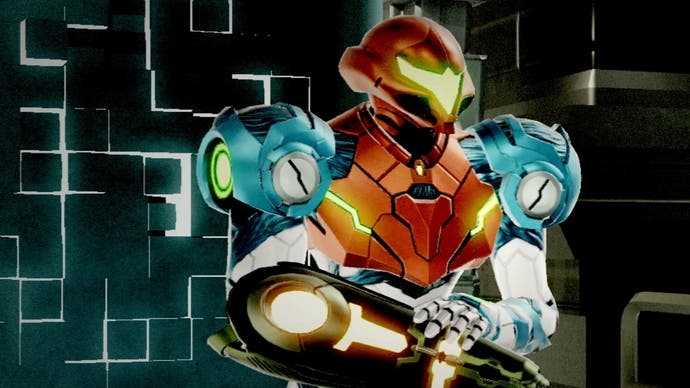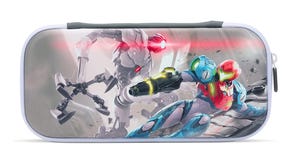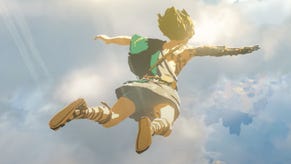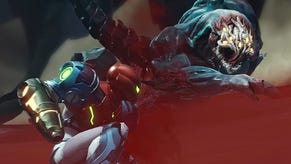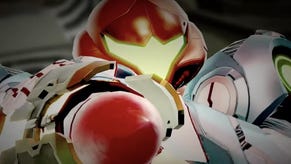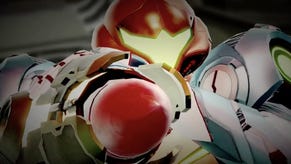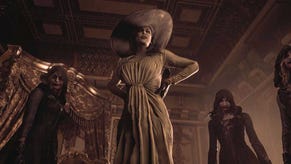Nintendo's Sakamoto on bringing Metroid Dread back from the dead
Finishing a 35-year story arc, and what may come next.
Nintendo's E3 2021 Direct saw it reward patient fans with the long-awaited return of franchises like WarioWare and Advance Wars, and (after much teasing) eventually show more Breath of the Wild 2. But perhaps its most astonishing announcement was of Metroid Dread - a project even the most patient Metroid fans gave up on over a decade ago.
Initially described as "Metroid 5", Metroid Dread was a surprise so good it trolled Metroid fans twice. No, this wasn't Metroid Prime 4. And no, really, this was going to be the game fans had written off as vapourware. It was a brilliant rug pull, and all the better for Dread being just a few months from launch.
But how similar is the Metroid Dread you'll play in October to the concept canned more than a decade ago? And why is it coming back to life now? This week I attended a roundtable interview over Zoom with Yoshio Sakamoto, Nintendo's 2D Metroid custodian, to find out more about the long-lost project, and how it serves as a conclusion to the story arc he has spent 35 years developing.
When Sakamoto is asked what has changed to enable development on Metroid Dread now, as opposed to back initially in 2005, his first answers are expected ones: graphical power, hardware capability. A follow-up to Metroid Fusion, Dread was originally planned for the Nintendo DS. Of course, things have changed a bit since then.
But what also becomes clear is the role Madrid-based MercurySteam have also had in giving 2D Metroid a future. After catching the industry's attention with its Castlevania: Lords of Shadow series, MercurySteam formed a successful partnership with Nintendo to remake Metroid 2. The resulting project, 2017's Metroid: Samus Returns for 3DS, was well-received. After that, it became a question of what to do next.
"Samus Returns went really well," Sakamoto said, "and meanwhile there was this long-standing project... which I've been wanting to make come true for a long time. Once I'd confirmed the excellent collaboration we had with MercurySteam, I felt we'd finally found the ideal partner to make my long-standing project come true."
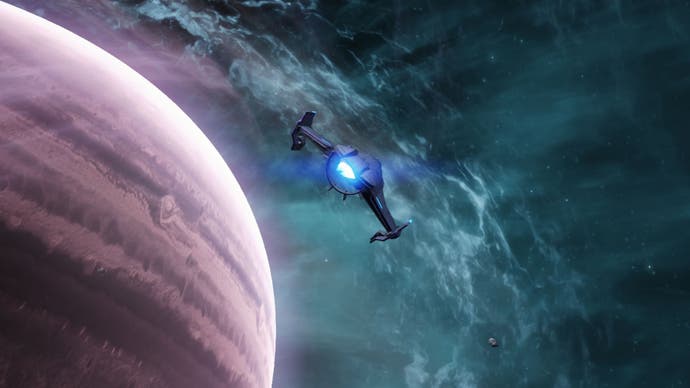
It is rare for cancelled Nintendo prototypes - and there are a lot - to become public knowledge, but due to a mixture of leaks, official statements, and a cheeky Easter egg in Metroid Prime 3: Corruption, the Metroid Dread project has lingered on in the public consciousness, long after its initial 2005 version was cancelled. (This is, I suspect, why the project's final title has returned to that original name after so long.) A second attempt to get the game made in 2008 reached playable prototype stage, shown around internally at Nintendo, then progressed no further. But the concept also clearly stuck in Sakamoto's consciousness - and now he had a proven development partner to make it reality.
"15 years ago when I originally conceived of the game, the story itself wasn't clearly set," Sakamoto recalled. "It was basically driven, or kept alive, by the concept. It's fairly recent we finalised the detailed story, so you can imagine what I had envisioned 15 years ago is not the same as what has been achieved now.
"It consisted of Samus facing a dreadful opponent, a dreadful experience," Sakamoto continued, when asked specifically about his original concept. "At that time I hadn't developed in detail the storyline within the overall chronology and background of the series. [On beginning work with MercurySteam] we further developed in detail the story... The final product surpasses what I originally envisioned."
One surprising element announced about Metroid Dread is it will mark the end of the storyline for Samus and her connection to the parasitic Metroids. This is why the game was originally described as "Metroid 5", as it will follow Metroid, Metroid 2: Return of Samus, Super Metroid and Metroid Fusion and cap off the series' narrative begun 35 years back. (For those wondering, the Metroid Prime subseries exists in its own bubble between the first two games.)
Dread "marks the conclusion of this story arc, and we've come up with a fitting ending to wrap the whole [thing] up," Sakamoto teases. Certainly, gameplay shown already during E3's Nintendo Treehouse Live includes various links to Metroid Fusion, such as Samus' computer Adam, and a mention that the X Parasite from that game was not eradicated. (For those not up on their Metroid lore, Dread will begin with a prologue for newcomers and a recap of the series' story to date, Sakamoto revealed.)
As to the story of Dread itself, well, we still know very little. It takes place on a new planet, ZDR, which has Chozo ruins and handy power-ups. It is also now home to the EMMI robots, originally sent by the Galactic Federation to investigate the X Parasite's return. These have, for reasons unknown, now turned against Samus, and act as Tyrant-esque roaming bosses that relentlessly pursue Samus through certain sections of the game. (They are not, Sakamoto stressed, present throughout, however. Exploration and traditional boss fights also remain a focus.)
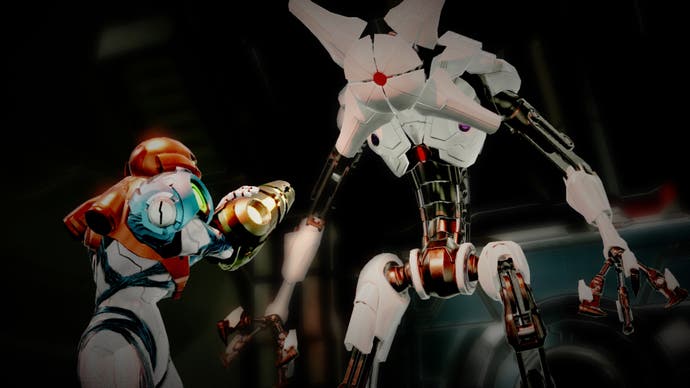
But if this is the conclusion to Metroid's main story arc, where will the 2D series go next? Is this it for the Metroids? Is this it for Samus? Calm yourself, Metroid fans. This seems unlikely. "[It's the] conclusion to one story arc," Sakamoto said. "What I can say upfront is that Samus' adventure will continue. How will it continue? Well, first things first, I believe that if and when you clear Dread, you will have a clear idea. Beyond that, we will continue to work hard so we can meet expectations and keep surprising you guys with exciting gameplay experiences."
On a more personal note, after 35 years of this Metroid arc, Sakamoto said he was looking forward to "new ideas". "In regard to my plans," he said, "I hope to take on new challenges and really feel a sense of relief in having achieved this much."
